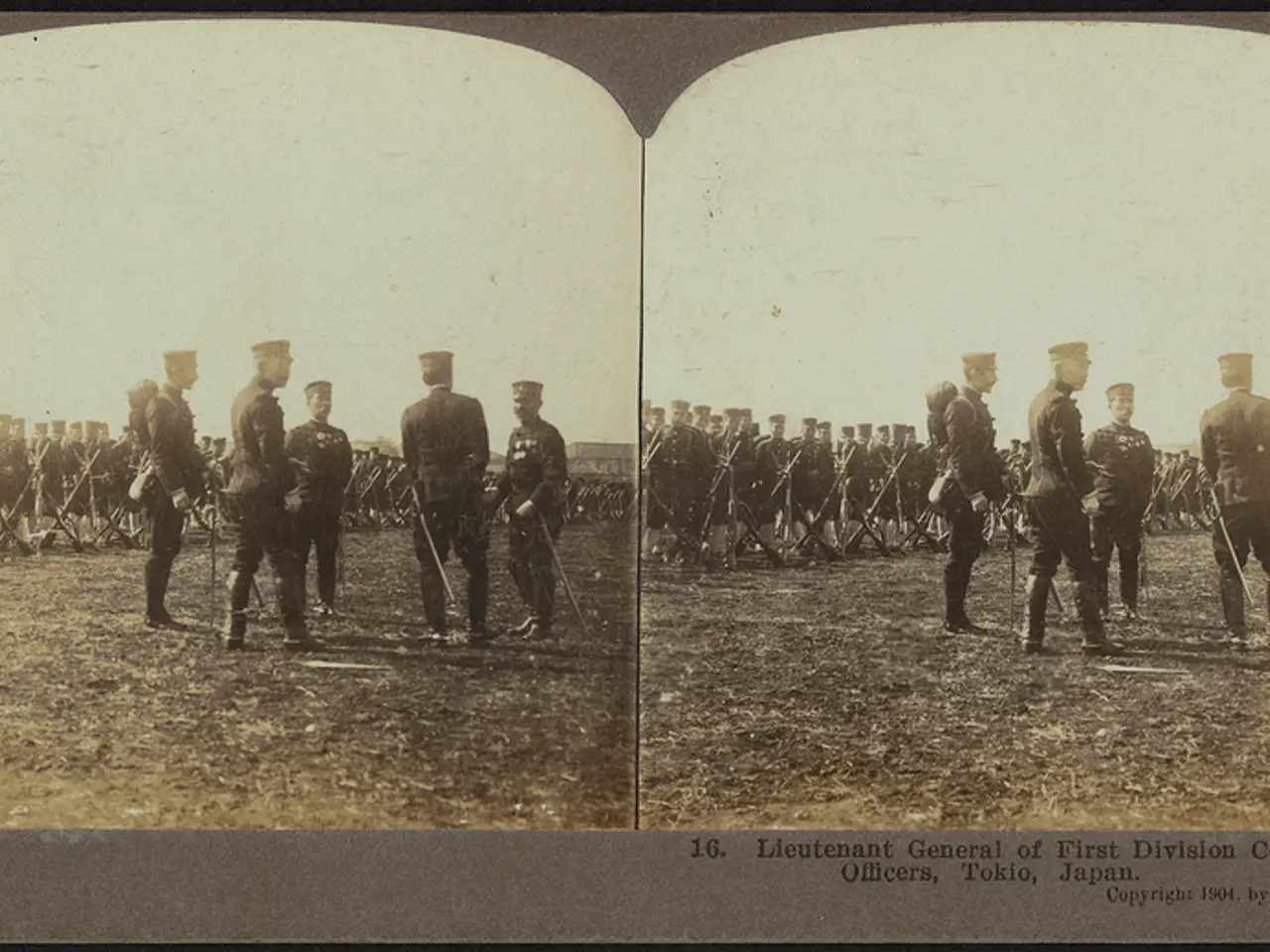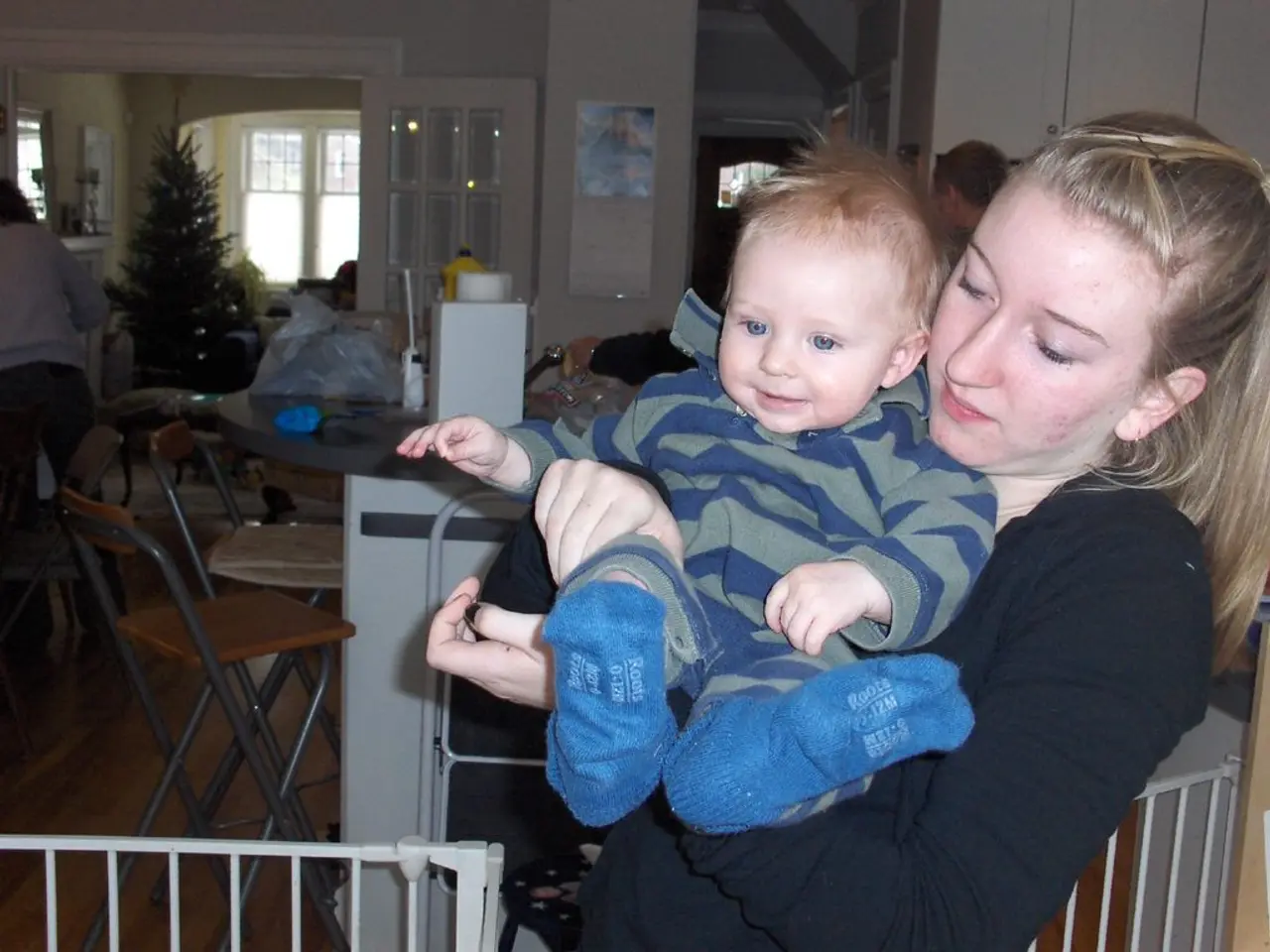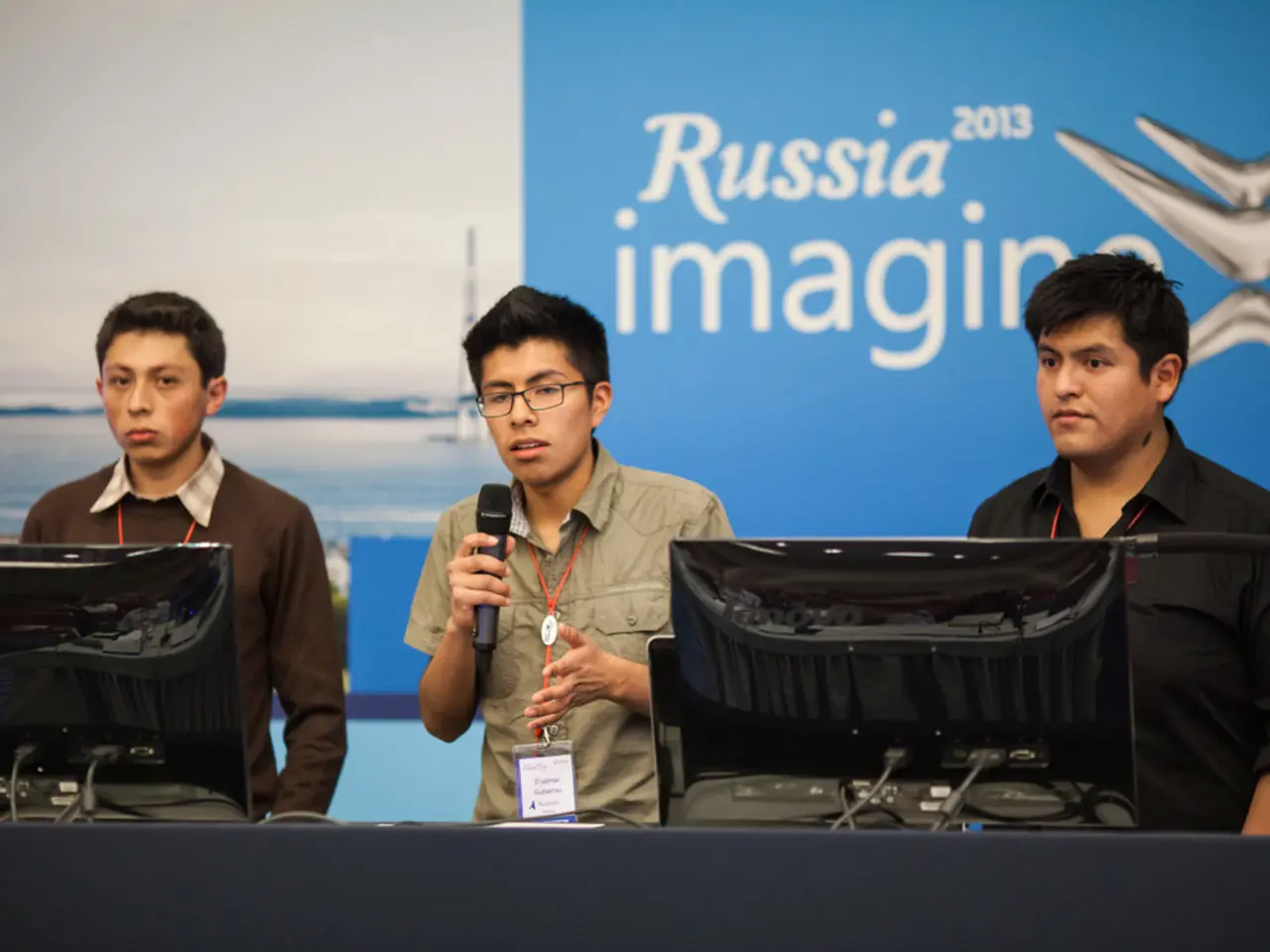In an emergency, just 16% of individuals would opt for a firearm as a solution
A recent survey by the Forsa opinion research institute for the German Editorial Network has revealed a concerning trend in the readiness of Germans to defend their country in the event of a military attack.
The survey results suggest that only a minority of Germans are ready to take up arms to defend the country. Specifically, only 16% of Germans would definitely be willing to defend their country with armed force, while an additional 22% might probably do so, totaling 38% expressing some willingness to engage militarily. Conversely, a significant majority—59%—would probably not or definitely not be willing to fight.
Among women, the reluctance to defend Germany is especially high, with 72% unwilling to take up arms in the event of a military attack. The survey does not provide information about the demographic breakdown of these expectations regarding military attacks or aid to allies.
Several factors appear to influence this low willingness. The deep imprint of Germany's Nazi past creates a strong societal aversion to militarism and armed conflict, fostering skepticism about military engagement. Many Germans harbor distrust toward Berlin’s foreign policy and NATO alignment, partly due to perceived elitism and Germany's support for controversial partners like Israel. This mistrust is stronger in East Germany, where 75% oppose arms exports to Israel.
The population also expresses fear about the consequences of war, including economic impacts and general safety, contributing to their unwillingness to support military defense. Gender differences also play a role, with women showing more pronounced reluctance. The rise of far-right sentiments further complicates public opinion on defense readiness, as parties like the AfD leverage this skepticism.
Despite Germany’s increased defense spending and efforts to modernize its armed forces in response to potential threats from Russia amid the ongoing Ukraine conflict, the public's lack of readiness poses challenges to aligning policy with societal support.
Notably, the survey does not provide information about the respondents' willingness to take up arms to defend Germany or its allies. It also does not specify which NATO member countries the respondents believe might be attacked or require aid. However, the survey does indicate a high level of perceived responsibility among Germans to defend their NATO allies if they are attacked.
In summary, the Forsa poll results highlight the complexities surrounding the readiness of Germans to defend their country and its allies in potential military conflicts. The survey findings underscore the need for continued dialogue and understanding between the public and policymakers as Germany navigates its role in a rapidly changing geopolitical landscape.
[1] German Editorial Network (2021). Majority of Germans Unwilling to Defend Country in Potential Military Conflicts, According to Forsa Poll. Retrieved from https://www.editorial-network.de/news/mehrheit-deutsche-unwillig-krieg-defendieren-2021-12-01
[2] Forsa (2021). The Readiness of Germans to Defend Their Country in the Event of a Military Attack. Retrieved from https://www.forsa.de/de/presse/pressemitteilungen/das-bereitschaft-deutscher-zu-verteidigen-ihren-land-im-fall-einer-militaerischen-angriffe
[3] Pew Research Center (2021). In NATO's 70th Year, Publics in Key Allies Divided Over Alliance's Role, Priorities. Retrieved from https://www.pewresearch.org/global/2019/04/24/in-natos-70th-year-publics-in-key-allies-divided-over-alliances-role-priorities/
[4] Kreutz, N. (2021). Germany's Dilemma: A Strong Army and a Peaceful Society. Retrieved from https://www.dw.com/en/germanys-dilemma-a-strong-army-and-a-peaceful-society/a-58556801
[5] Spiegel Online (2021). AfD Wants to Dismantle NATO. Retrieved from https://www.spiegel.de/politik/deutschland/afd-will-nato-auflosen-a-1280242.html
- The Commission, considering the findings of the Forsa poll that show a majority of Germans are unwilling to defend their country in potential military conflicts, might find it necessary to address the public's concerns and foster dialogue in the preparation of the draft directive, especially considering the implications of war-and-conflicts on politics and general-news.
- The ongoing debate about Germany's role in NATO, exemplified by the Forsa poll results and the rise of far-right sentiments, such as those expressed by the AfD party, underscores the complex politics surrounding war-and-conflicts, a topic that requires the attention of policymakers and the general public alike.







